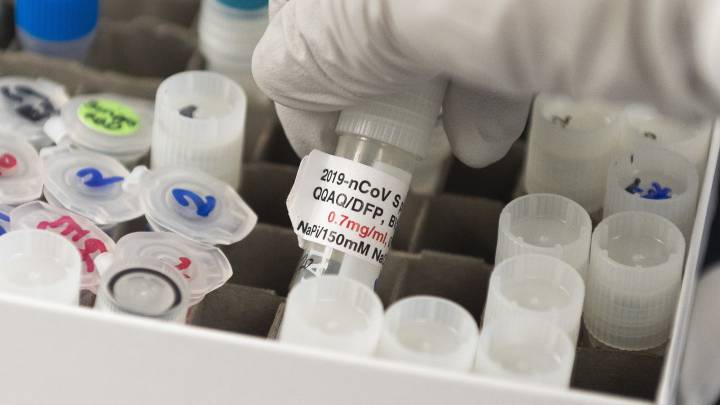
While the cases of coronavirus are rapidly increasing, so is the competition to come up with a vaccine against the deadly virus. US, China, UK and other countries are investing on the research for coronavirus vaccine – even private companies are aboard in the research.
The first coronavirus vaccine trial conducted in humans in US has shown immune response against the virus and is considered safe, manufacturer of the vaccine, Moderna announced on Monday.
All eight patients in a Phase One safety trial developed antibodies for the virus after two doses of mRNA-1273, the vaccine that the biotech is developing with the National Institute of Allergy and Infectious Diseases.
Dr Tal Zaks, chief medical officer at Moderna, said the vaccine was “generally safe and well tolerated”. The company noted that at the highest dose level, 250 micrograms, three people had severe but not life-threatening side effects.
Vaccine development normally takes years, and Moderna has not yet won approval for any vaccine it has developed using the mRNA technology behind its coronavirus vaccine. Subsequent trials typically enroll hundreds or thousands of people and take months to complete.
Larger trials to see whether the vaccine actually protects against infection are expected to start in July.
According to Zaks, if the vaccine is proven to work, it will be provided worldwide till the end of 2020 or by early 2021.
A vaccine pioneered by the University of Oxford, UK is also being tested in people, but there are no results from those trials yet. Tests showed vaccinated animals had less severe symptoms and did not get pneumonia. However, they were not completely protected from the virus.
Prof Eleanor Riley, from the University of Edinburgh, said, “If similar results were obtained in humans, the vaccine would likely provide partial protection against disease in the vaccine recipient but would be unlikely to reduce transmission in the wider community.”





